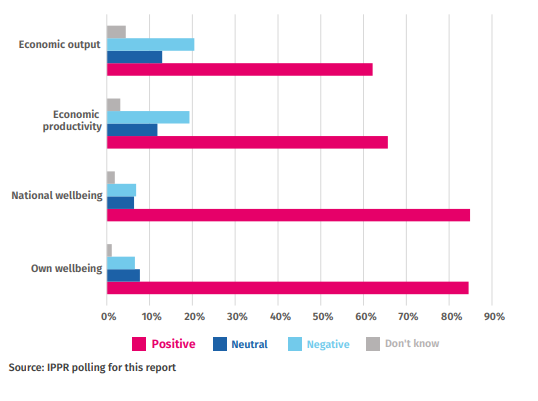|
After lockdown resulted in the largest work from home experiment we’ve ever seen, it became clear that our current workforce was ready for a much-needed upgrade. As most companies are now heading towards a hybrid workplace setup, it is vital to take the work-life balance into account to ensure the right improvements are being made. The hybrid workplace has a lot of potential. It gives employees the opportunity to be more flexible and work with their personal schedules. In addition, it also reduces travel time and CO2 emission which, of course, is great for the environment. And perhaps most importantly, employees manage to be equally, and in some cases even or more, productive. However, there are a number of downsides to working in this new setup. Employees have reported feeling isolated, more stressed and missing the social interactions that we need as human beings. Training of new staff members, or mentoring colleagues, also brings new challenges along the way. Not to forget, the so-called zoom fatigue; the overuse of virtual platforms of communication in particular video conferencing to meet other colleagues remotely for staff meetings. So if you are struggling, or feeling overwhelmed by these changes, you are not alone (but don't worry I can help!) So what is work-life balance? Why is it important? And what small changes can we make to make this easier? What does work-life balance mean?In short, work-life balance means the equilibrium between personal life and work. But there is so much more to it than these two elements: work and life. What are the myths surrounding work-life balance? One of the biggest myths surrounding work-life balance is that this balance is like a scale; when one side goes up, the other side goes down. The reality is that every single one of us has our lives, and work is part of this equation, but it is not the only thing that matters. If we want to create a better work-life balance for our employees and ourselves, we need to start seeing work as an extension of life so we can create a better balance in all areas of our life; such as emotionally, mentally, physically, spiritually and financially. Only if we take all the areas of our lives into account and these needs are met, can we create a work-life “balance” that actually serves us well. Did you know?Recent studies show that over 40 % of the global workforce is considering leaving their employer this year because they are unhappy with the current situation. These shocking numbers don’t lie: - 20 % say their employer doesn’t care about their work-life balance - 54 % feel overworked - 39 % feel exhausted The healthcare costs of job-related burnout are currently guesstimated between $125-$190 billion per year in the US alone. In the UK, the number for mental health-related costs sits at £35 billion per year. And male suicide is still the number one cause of death in the UK? Besides the devastating effects these (mental) health and stress related issues can have on a person and their families, it is also very expensive! That's why I think it is time we upgrade the way we view work and create a better version of work 2.0 that includes the wellbeing as part as the business strategy. So if you are not managing to find a good balance between work and life, trust me, you are not alone. What are the dos and don’ts surrounding work-life balance when working remotely?There are a number of dos and don’ts that make working remotely much easier to implement. It can be quite challenging but is not impossible with the right strategy.
|
MEet SusanneTwo-Time Bestselling Author, Multi-Award-Winning Work-life Balance Expert, Keynote Speaker - Susanne Grant - will transform the way you think about success in the workplace as she is helping your employees to be healthier, happier & more efficient. Archives
March 2022
|





